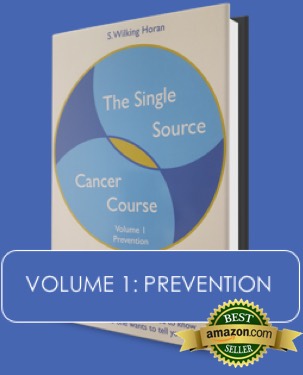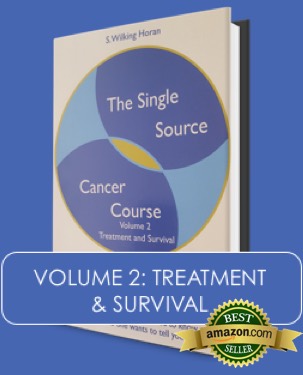 THE 5 STAGES OF GRIEF, SYMPTOMS & RECOVERY
THE 5 STAGES OF GRIEF, SYMPTOMS & RECOVERY
Hello everyone and welcome back to the Blog. This week we’re going to discuss grief and the grieving process, because life is an ever-changing phenomenon and loss is an inevitable part of the equation. And when we experience loss, we grieve. So, it’s important that we learn to deal with loss and understand grief in a way that heals us and moves us forward in a life-affirming way.
Loss, of course, can result from so many different things. The loss of our physical health, the loss of a job, the loss of a relationship, the loss of a dream, or the loss of a loved one through abandonment, neglect or death, and tragic world events all take a toll on our wellbeing and result in emotional turmoil and grief.
In these post-Pandemic days, many of us also feel the loss of a lifestyle and a world that have been turned upside down where neither will ever be the same.
Grieving is a very personal experience and how we grieve depends upon many factors such as our personality, our past experiences, our age, our faith, our culture, our coping skills and, of course, the nature of our loss.
Moreover, grief has its own time-table. It may last for a few weeks, or it may linger for years. Yet, understanding loss and the grieving process can help us find balance in the ever-changing world around us, and support us as we strive to move forward.
The Five Stages of Grief were first coined in 1969 by psychiatrist Elisabeth Kubler-Ross, and they include:
- DENIAL: “This can’t really be happening. This cannot be real.”
- ANGER: “Who can I blame for this? Whose fault is this? Why did this happen to me?”
- BARGAINING: “If this will only go away, I promise to ____. Please make this better and I will never again ____.”
- DEPRESSION: “I don’t feel like doing anything. I’m too sad to get up in the morning. I feel too bad to leave the house.”
- ACCEPTANCE: “I understand why this happened. I’m at peace with the world and myself. All is as it should be.”
 Once we have this outline of possible stages, we can fill it in with a number of different emotional and physical responses. Because as we grieve, there are five symptoms of grief that may occur, and these are among the most common:
Once we have this outline of possible stages, we can fill it in with a number of different emotional and physical responses. Because as we grieve, there are five symptoms of grief that may occur, and these are among the most common:
- SADNESS: Weeping, loneliness, inconsolable despair and longing for that which is lost is very common.
- DISBELIEF, SHOCK & INSTABILITY: We may not feel capable of accepting the loss. We may feel numb. We may feel an inability to think clearly or make daily decisions. We may feel we have lost our grasp on reality.
- FEAR: We may feel insecure and helpless. We may worry about our ability to live life well or take on responsibilities. We may suffer anxiety and panic attacks and a loss of confidence.
- PHYSICAL DIFFICULTIES: We may find ourselves fatigued during the day and yet unable to sleep at night. Nausea and indigestion may be experienced. We may have unexplained aches and body pain, or a loss of appetite.
- GUILT: This includes the “what ifs?” What if I did this differently. Or what if I said that? We feel guilty about not doing enough or perhaps we feel guilty because the loss makes us feel relieved.
With this information, however, we can now begin to develop coping strategies that include:
- PHYSICAL NEEDS: To combat the stress of loss, try to eat healthy foods, exercise, rest and drink lots of water for proper hydration.
- PERSONAL PAMPERING: Don’t push yourself too hard. Take it easy. Read a good book or put on some beautiful music. Get a massage or have your hair and nails done. Eat chocolate to boost your mood. Soak in a hot tub. Sit in the warm sun. Be kind to yourself.
- SOCIAL SUPPORT: Be with others. Reach out to friends and family. Surround yourself with people who understand. Give yourself the chance to vent your pain and sorrow through intimate communication. Storytelling and venting to others will facilitate the healing process.
- EMOTIONAL EXPRESSION: Get creative and express your feelings. Create a Journal in which you chronicle your emotions throughout each day. Design a Scrapbook based upon the life of your loved one – or the home you lost. Or begin a Book of Possibilities in which you write about and post pictures of the life you hope to rebuild or the health you wish to regain.
- SPIRITUAL RITUAL: The serenity of Spirituality comes in many forms. Attending Church, Temple or Mosque, or perhaps meditating, yoga or Tai Chi will help you find peace. Deep breathing and visualization can also calm the mind and ease the pain.
 Grief is a long road, but a little understanding of the process can help us navigate this inevitable part of life. Let’s remember to take it one small step at a time, little by little, until we reach the other side.
Grief is a long road, but a little understanding of the process can help us navigate this inevitable part of life. Let’s remember to take it one small step at a time, little by little, until we reach the other side.
Thanks again everyone for joining me. Until next time, stay safe, stay in GOOD HEALTH and . . .
TAKE THE COURSE AND TAKE CHARGE!



Leave a Comment